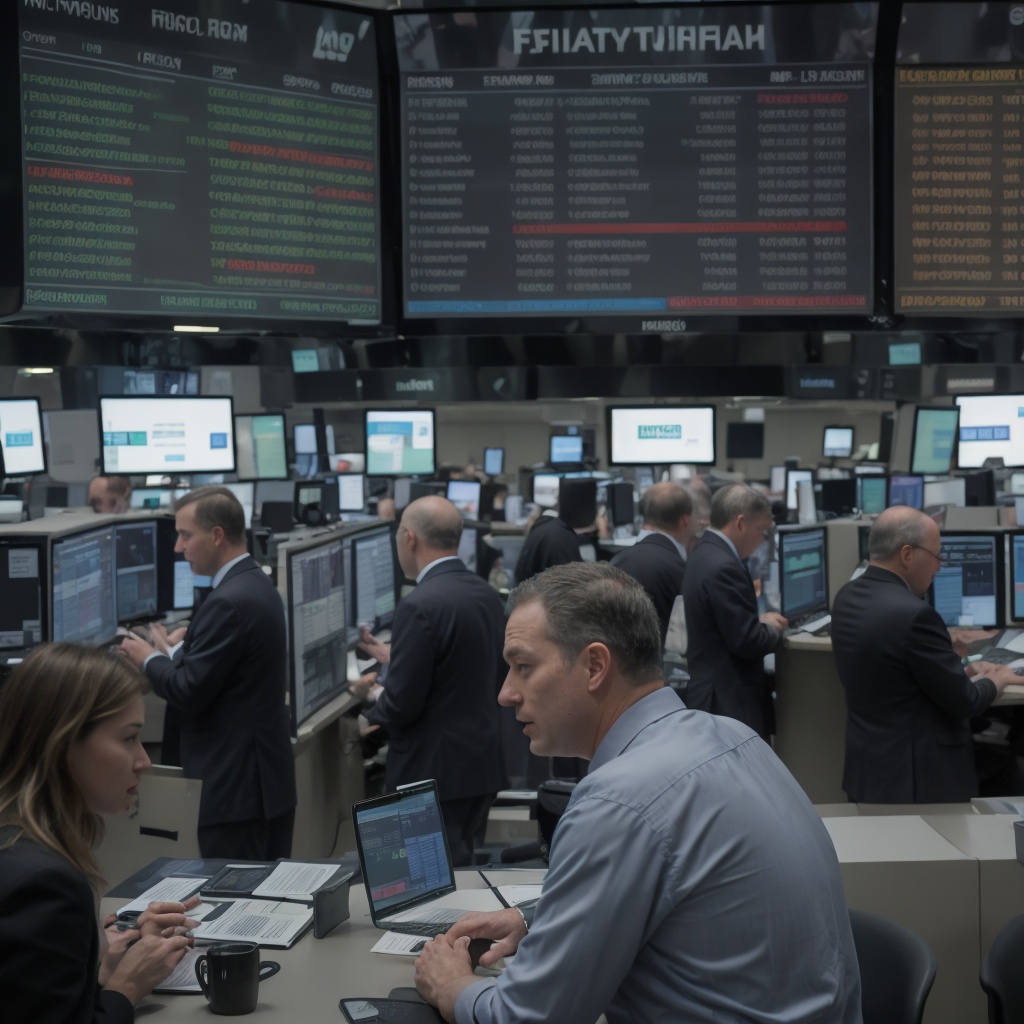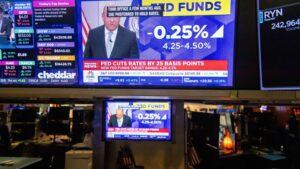summary
The page “Unleash the Excitement: Dynamic Midday Surges featuring Coinbase, Airbnb, WeRide, GameStop and More” provides a comprehensive exploration of the phenomenon of midday trading surges in the stock market, which can generate significant increases in investor interest and trading volume. Companies often time these surges strategically, leading to major fluctuations in the trading volumes of stocks from diverse sectors, from regional banks like Zion Bancorporation (ZION) to tech giants like Intel (INTC). The GameStop case highlights the potentially transformative power of retail investors and the crucial importance of understanding the complex drivers of volume surges.
This article also delves into the impact of investor sentiment on these surges, indicating that the number of Google searches on financial keywords and the volume of company-specific messages on platforms like StockTwits can have predictive power for market volatility. Notable examples of companies that have experienced significant midday surges include Coinbase Global (COIN), Airbnb, WeRide, and GameStop.
However, while midday surges can offer investors opportunities for profit, they can also expose them to risks. For instance, Coinbase Global shares plunged following charges by the Securities and Exchange Commission (SEC), reflecting the potential for negative shocks in the market. Additionally, companies in volatile sectors like cryptocurrency and autonomous vehicles must continually navigate complex regulatory landscapes.
The page further explores various factors that influence these midday surges, such as market events, investor sentiment, trading strategies, and the performance of specific stocks and sectors. It emphasizes the significance of strategic planning, tactics in financial decisions, and partnerships in influencing market conditions. Understanding these factors is essential for traders and investors seeking to capitalize on these dynamic midday surges.
Overview
The importance of midday trading surges in the stock market cannot be overstated. These dynamic events, often strategically timed by companies, can generate a significant uptick in investor interest and trading volume. The factors that influence these volume surges are multifaceted and complex, involving sentiment, price levels, liquidity, market conditions, timing, trading strategies, and market perception.
One illustrative case is the unprecedented surge in GameStop’s trading volume, which underscored the potential power of retail investors. These events can provide valuable insights for traders, indicating shifts in market sentiment, potential price movements, or the presence of significant news or events.
Sentiment indicators play a pivotal role in this context. These graphical or numerical tools are designed to show how a group feels about the market or economy. The application of sentiment classification techniques reveals that investor attention, as measured by the number of Google searches on financial keywords and the daily volume of company-specific short messages posted on platforms like StockTwits, have predictive power for realized volatility.
The midday trading surge landscape is consistently vibrant, with a diverse range of stocks posting the largest moves. For instance, regional banks such as Zion Bancorporation (ZION) and Comerica (CMA) have often led the list of best-performing stocks in the S&P 500. Similarly, shares of tech firms such as Intel (INTC), Advanced Micro Devices (AMD), and GitLab (GTLB) have shown significant upticks, with GTLB benefitting from the artificial intelligence boom. However, the stock market landscape is also susceptible to negative shocks, as demonstrated by the plunge in Coinbase Global (COIN) shares following charges by the Securities and Exchange Commission (SEC).
Moreover, initial public offerings (IPOs) can also cause significant midday surges. Airbnb, for example, had one of the most anticipated IPOs of 2020, contributing to a record year for stock market listings. Overall, understanding and capitalizing on these dynamic midday surges require keen market awareness, strategic timing, and an in-depth comprehension of the complex factors that drive trading volume.
Coinbase
Coinbase Global, Inc., commonly known as Coinbase, is a US-based cryptocurrency trading and investment platform . The platform, which supports basic transactions, digital wallet features, and PayPal withdrawals, has been lauded for its user-friendly interface that caters to both beginners and advanced traders . The advanced traders have access to Coinbase Pro, which offers professional trade execution and lower fees .
Coinbase’s prominence and the increasing legitimization of cryptocurrency in traditional finance have been linked, with bullish analysts projecting target prices above $280 . This suggests that the growing success of Coinbase may facilitate the ongoing integration of cryptocurrencies into conventional finance .
However, the company’s financial stability and share prices are significantly influenced by the volatile nature of cryptocurrency markets . Additionally, Coinbase has to continually navigate complex regulatory landscapes that could affect its operations .
Airbnb
Airbnb, Inc. is a widely recognized company that operates an online marketplace for lodging, primarily homestays for vacation rentals, and tourism activities . The company has been listed among major corporations like Coinbase Global, Inc., Nasdaq, Inc., and Palantir Technologies Inc. .
The business landscape for Airbnb and similar platforms is continually changing. For instance, traditional hotel brands are strategizing to compete better with Airbnb by revamping their brand narratives to exhibit and fulfill their authenticity more effectively .
Investor sentiment significantly influences Airbnb’s stock performance and market movements, similar to other companies . This sentiment can incite investors to buy or sell Airbnb stocks in line with the prevailing market trends, impacting the company’s stock price. The sentiment-driven trading behavior is not necessarily irrational but rather linked to shifts in risk tolerance .
There have also been instances when the company’s stocks have experienced notable midday movements, reinforcing the potential for volatility in Airbnb’s share price . This unpredictability underscores the high risks involved in trading financial instruments and cryptocurrencies, which may not be suitable for all investors .
WeRide
WeRide, a notable player in the autonomous vehicle industry, has strategically leveraged the strengths of its investors to expand its operations both within and beyond China. The company has developed its Autonomous Driving (AD) technology on Nvidia’s compute platform since its inception in 2017, thereby enabling the creation of a variety of products like Robotaxis, Robovans, and Robosweepers.
Its Robovan W5 is designed with a strong emphasis on safety and operational efficiency, and the vehicle supports multi-vehicle platooning, a feature that allows a single operator to manage multiple vehicles simultaneously. This innovation contributes to the standardization and scaling of delivery processes.
WeRide enjoys a first-mover advantage in the high-autonomy vehicle space, which is complemented by its international partnerships. The company, however, may face potential regulatory challenges that could affect the deployment of autonomous robo-vehicles. Despite such potential hurdles, WeRide is well-positioned to benefit from industry expansion and the growing demand for autonomous driving solutions, reflecting the increasing confidence in the autonomous driving sector.
GameStop
GameStop, a prominent video game retailer, has recently captured attention due to a significant surge in its stock value. This increase in trading volume highlighted the potential influence of retail investors when they band together. The retailer experienced a stock jump of more than 5% following reports that the company is contemplating investing in bitcoin and other cryptocurrencies.
This potential shift towards cryptocurrency is seen as a strategic move that may significantly impact the company’s future operations. However, the decision is still under review as the company considers whether this change aligns with its business model. GameStop’s move to cryptocurrencies could also contribute to the ongoing integration of cryptocurrencies into conventional finance.
Nevertheless, the company, like others venturing into this field, must tread carefully due to the volatile nature of the cryptocurrency market. The uncertainty of this market could potentially affect GameStop’s financial stability and share prices. Additionally, the company must continuously navigate the complex regulatory landscapes that come with handling cryptocurrencies.
Factors Contributing to Midday Surges
Understanding the factors that influence midday surges in trading volumes is essential for traders and investors. These surges can be attributed to a complex interplay of sentiment, price levels, liquidity, market conditions, timing, trading strategies, and market perception.
Market Events and Investor Sentiment
Companies often schedule events strategically, taking into account market events and investor sentiment. A well-timed event can generate more interest and participation, resulting in a higher volume surge. Conversely, a poorly timed event may not have the desired effect. External factors such as market perception of specific industries can also influence surges. For instance, a pessimistic outlook for technology companies in Asia or pharmaceutical companies in Europe could easily spill over into U.S. trading and cause American technology and pharmaceutical stocks to take a nosedive.
Trading Strategies
The volume surge is not only influenced by external factors but also by trading strategies. Traders who employ various strategies, such as arbitrage or momentum trading, may seize the opportunity presented by a reverse forward split to capitalize on price disparities, contributing to increased trading volume.
Specific Stocks and Sectors
Specific stocks and sectors can play a significant role in contributing to midday surges. For instance, the thriving of a company like Coinbase could lead to increased legitimacy of cryptocurrency in the traditional financial realm, leading to a surge in trading volume. However, investors should also be mindful of the volatile nature of such markets, which can impact financial stability and share prices.
Finally, investors should be aware of the external factors such as financial, regulatory, or political events that may affect the prices of the stocks they are trading in.
Impact of Strategic Decisions and Partnerships
Strategic planning and tactics in financial decisions can have substantial effects on market conditions. The sales, marketing, and revenue management approaches adopted by companies can trigger a significant shift in the market, influencing trading volumes and stock prices. One such tactic is the timing of strategic events, such as stock splits. Companies often time these events considering market sentiment and other prevailing conditions.
Partnerships can also influence how and where listings appear, potentially affecting the volume surge. For instance, compensation received by Investopedia from its partners can impact its listing approach. These decisions may be strategic, altering the presentation and perception of investment opportunities.
Traders and investors employ various strategies such as arbitrage or momentum trading, capitalizing on the opportunities presented by these strategic decisions and partnerships. The GameStop case highlighted the power of retail investors and the importance of monitoring volume surges and understanding the underlying factors driving them.
The content is provided by Jordan Fields, Financial Pulse Now





















